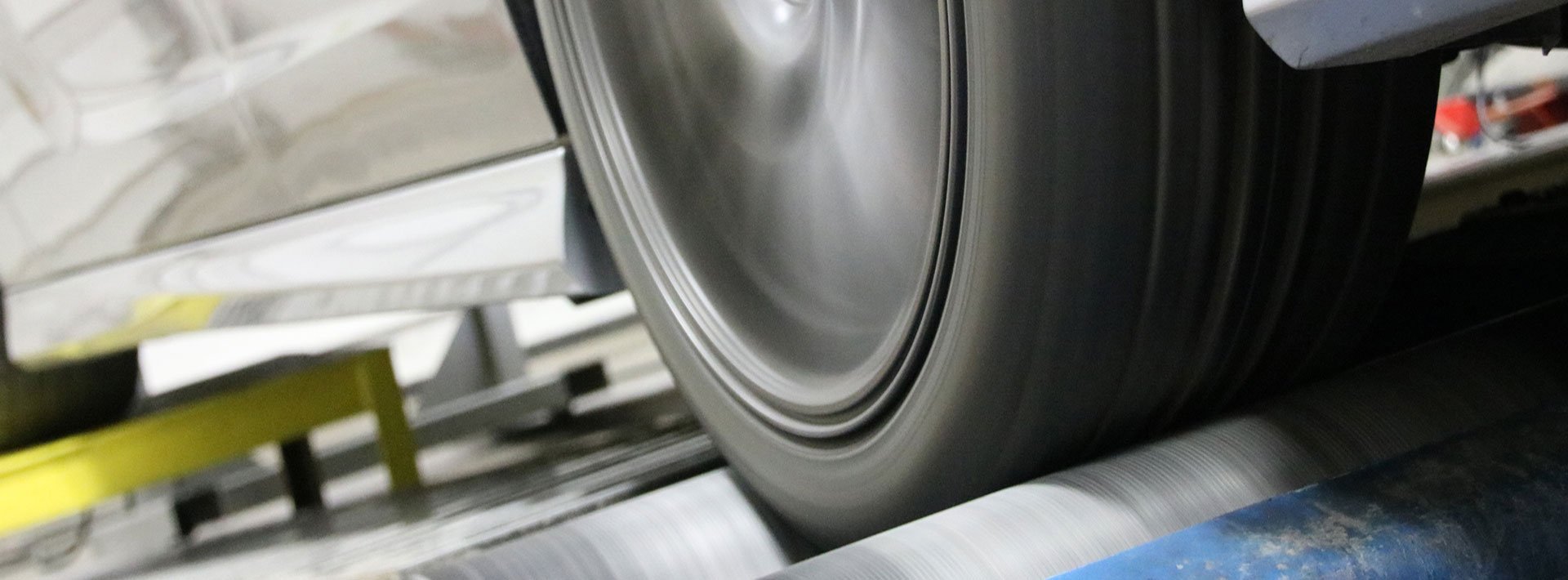EN 14246 Truck Wheel Rim Fatigue Performance Testing
The European Standard EN 14246 specifies a method for testing the fatigue performance of truck wheel rims. This standard is crucial in ensuring that truck wheels can withstand repeated loads and stresses over their service life, which is essential for road safety and operational efficiency.
Trucks are integral to modern transportation networks, moving goods across continents with immense payloads. The stress on truck wheels due to this load-bearing capacity means they must be designed and tested to the highest standards. This testing ensures that any wheel rim complies with the requirements of EN 14246, thereby enhancing reliability and safety for road users.
The standard outlines a series of tests intended to replicate real-world conditions experienced by truck wheels during their operational life. These include cyclic loading tests to evaluate how well the wheel rim can endure repeated stress cycles without failure. The testing process is designed to identify potential weaknesses in the design or manufacturing process, ensuring that only robust and reliable parts make it into service.
The fatigue performance test involves subjecting a sample of truck wheel rims to controlled conditions that mimic the forces they encounter on the road. These tests are conducted using specialized equipment capable of simulating various load scenarios, including static loads, dynamic loads, and impact loads. The goal is to determine the number of cycles before failure or any form of fatigue-induced damage occurs.
The testing setup typically includes a fatigue tester that can apply controlled stress and strain to the wheel rim sample. This equipment allows for precise control over loading parameters such as frequency, amplitude, and duration. The test samples are often made from materials commonly used in truck wheel manufacturing, like steel or aluminum alloys, which undergo rigorous quality checks before being subjected to testing.
During the test, engineers closely monitor critical variables such as stress levels, strain rates, and temperature changes within the specimen. These parameters provide valuable insights into how well the material performs under different conditions. The data collected during these tests is crucial for validating both new designs and existing products against EN 14246 requirements.
Compliance with EN 14246 ensures that truck wheel manufacturers adhere to strict quality standards, which helps in maintaining consistent performance across all models and variations of truck wheels. This standardization not only improves overall safety but also contributes to reducing maintenance costs by identifying early signs of potential issues through comprehensive testing.
It is important to note that while this article focuses primarily on the technical aspects of EN 14246, it’s worth mentioning its broader implications for the automotive sector. By adhering to such stringent standards, manufacturers can contribute significantly towards reducing road accidents caused by wheel failures. Additionally, compliance with international standards like EN 14246 fosters trust among customers and partners, enhancing brand reputation and market position.
The importance of this testing cannot be overstated; it underscores the commitment to excellence in engineering practices within the automotive industry. As technology continues to evolve, so too do our methodologies for ensuring product reliability and safety. With advancements in materials science and manufacturing techniques, we are constantly pushing boundaries to create even more durable and efficient truck wheels.
Benefits
The implementation of EN 14246 fatigue performance testing brings numerous advantages to the automotive industry:
Enhanced Safety: By ensuring that truck wheel rims meet rigorous standards, this testing significantly reduces the risk of accidents caused by wheel failures. This not only protects drivers but also contributes to safer roads for all users.
Improved Durability: Compliance with EN 14246 helps manufacturers produce more durable wheels capable of enduring harsh conditions and heavy loads without compromising on quality.
Cost Efficiency: Early detection of flaws through thorough testing can prevent costly repairs or replacements later in the product lifecycle. It also reduces downtime associated with wheel failures, leading to higher operational efficiency.
Regulatory Compliance: Adhering to international standards ensures that products meet regulatory requirements, facilitating smoother imports and exports across borders without additional barriers.
Innovation Opportunities: The process of meeting such stringent criteria often drives innovation in materials science and engineering practices, leading to advancements that benefit the entire industry.
Consumer Trust: Demonstrating commitment to high-quality products builds trust with customers, fostering long-term relationships based on reliability and satisfaction.
Eurolab Advantages
At Eurolab, we pride ourselves on offering comprehensive testing solutions tailored specifically for EN 14246 compliance. Our expertise lies in providing accurate, reliable results that help ensure your products meet or exceed international standards.
State-of-the-Art Facilities: Equipped with advanced testing equipment capable of simulating real-world conditions, our laboratories offer precise control over environmental factors like temperature and humidity.
Experienced Technicians: Our team comprises highly skilled professionals who have extensive experience in conducting various types of fatigue tests. They bring valuable insights into interpreting results accurately and providing actionable recommendations for improvement where necessary.
Comprehensive Reporting Services: Beyond just passing or failing a test, we provide detailed reports that explain the process step-by-step, highlighting any areas where improvements could be made. This approach ensures transparency throughout every stage of testing.
Fast Turnaround Times: Recognizing the importance of timely delivery, Eurolab prioritizes quick turnaround times without compromising on quality. Our efficient processes allow us to complete tests swiftly while maintaining accuracy and reliability.
Dedicated Customer Support: From initial consultation through final report submission, our dedicated customer support team is always available to assist you every step of the way. Whether it’s answering questions about specific testing procedures or offering advice on best practices for product development, we’re here to help.
Global Network of Partnerships: Leveraging our extensive network of international partners allows us to stay at the forefront of industry trends and developments. This ensures that our services remain relevant and effective in meeting current regulatory requirements globally.





